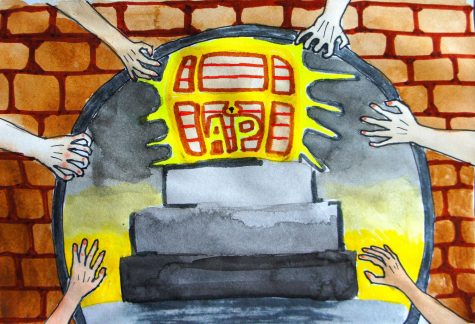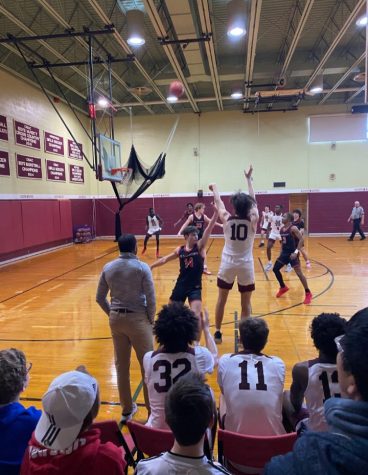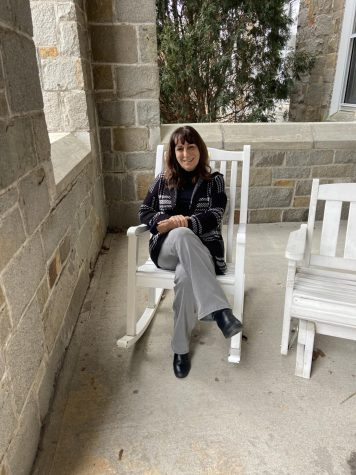AP Courses: Excellence as a Battlefield
November 26, 2017
It is no secret that AP courses are booming at MacDuffie—whether a student is in sophomore or senior year, we battle our way into AP classes to prove our intelligence or in hopes of strengthening our transcripts.
The College Board defines AP courses as “rigorous, college-level classes in a variety of subjects that give students an opportunity to gain the skills and experience colleges recognize.” Given the popularity of AP courses, one begins to wonder if the classes are worth the trouble, and if they actually pay off in college. What are the students’ rationale for taking these courses, especially given how much work they entail? What do the teachers of AP Courses think about students’ scramble to get into their classes?
Often when students are asked why they take AP Courses, it is to improve their transcripts, working towards the goal of getting into the ideal school (whatever that may be) after graduating from MacDuffie.
History Chair Joan O’Brien teaches AP US History. She speaks on her students’ motivation in taking her class, saying that, “I do want my students to challenge themselves…but also students who are interested in history. I don’t want someone to fight their way into the class just because they want it on their transcript…that doesn’t seem like quite the right motivation.”
O’Brien suggests that she wants students in her AP Course because there is another component in their taking it—not just to fortify their college applications. Despite this, however, O’Brien says that she can comprehend why this frenzy to take AP Courses has arisen, “I understand why students feel that pressure to be in the most challenging classes. But sometimes it seems just about…another way to…grab for grades…That intense, competitive craziness that we see here for sure.”
More than a few students feel this burden placed upon them from freshman year. The implication is that college is the ultimate goal, and students should aim to do everything in their power to look as attractive as possible on paper.
Many students do undertake AP Courses for more than it being another asset, though this remains a factor. Senior Sarah Soares took three APs last year, and is taking four APs this year. As to why she has taken these courses, she says, “Part of it is definitely…how it looks for colleges. It’s good to take the most challenging courses that you can, I think, and the other part is just that the subjects of them are interesting…Three of [the APs I take] I wouldn’t be able to learn those things without the AP Courses.”
This brings up the economics, per se, of advanced courses. Many are offered because there is a high demand for them. David Ruiz, Academic Dean, confirms this, saying, “It’s marketing…and being able to be competitive—our competitor schools are likewise offering [these AP Courses]…We certainly want to attract the best and the brightest, and being able to offer courses that will pull those kinds of kids in becomes really important for us. And there certainly was teacher interest…that’s how the AP Bio class came about.”
Aside from looking attractive on a student’s transcript, AP Courses can sometimes count for college credit. Math Teacher Peter Shelburne teaches several rigorous AP Courses. He notes that an incentive for students to take APs like his definitely has to do with the student’s future endeavors. “The benefit is the college credit…so if you can do well on an AP, certainly in math, then that qualifies you to take a certain higher level math class. That basically gives you credit for a semester’s work in college, which is expensive credit,” he says.
Though this benefit is promising, he also remarks that APs generally work at a different speed than other classes, which can prove challenging for some students. As to who best suits this kind of curriculum, Shelburne says, “It has to be someone who’s disciplined about doing their work, and can keep up with a fast moving class…For most of these APs, there’s a lot of material to cover in a short amount of time…It may be hard to keep up with that material.”

In all, AP Courses do offer many advantages to any student looking to take them. However, as these interviews have suggested, a student should be interested in taking AP Courses for the “right reasons,” and if they think they are suited for a class of that caliber. It is truly up to the student to decide if taking an AP Course is what will make their future and present self happy. Never mind how many AP Courses a student should take—that’s a different article entirely.






